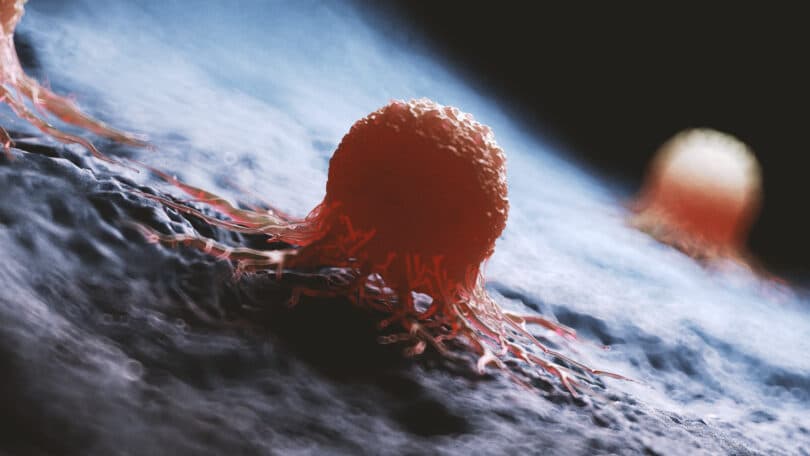Recent research highlights the potential of a cannabis extract, PHEC-66, in effectively targeting and killing melanoma cells, marking a significant advancement in the treatment of this aggressive skin cancer.
In a notable breakthrough, scientists have discovered that PHEC-66, a concentrated cannabis extract developed by MGC Pharmaceuticals, can significantly inhibit the growth of melanoma cells, the most lethal form of skin cancer. Conducted by researchers at RMIT University and Charles Darwin University in Australia, the study found that PHEC-66 induces apoptosis, or programmed cell death, in melanoma cells, preventing their proliferation.
This discovery is particularly promising as it opens up new avenues for melanoma treatment, a condition notoriously difficult to manage. The study’s findings, while preliminary, suggest that cannabis extracts like PHEC-66 could play a crucial role in future cancer therapies. However, further research, including animal studies and clinical trials, is necessary to fully understand the extract’s efficacy and safety in treating melanoma.
The legalization of medicinal cannabis in Australia in 2016 has facilitated extensive research into its therapeutic applications, including cancer treatment. Previous studies have already demonstrated the potential of certain cannabis strains to target and kill cancer cells without harming healthy cells. For instance, research in 2020 identified cannabis varieties that could induce cell death in leukemia cells.
The current study‘s mechanism involves PHEC-66 causing DNA fragmentation in melanoma cells, halting their division, and significantly increasing levels of reactive oxygen species (ROS) within the cells, leading to apoptosis. These findings are crucial for understanding how cannabis extracts can be utilized in cancer treatment, highlighting the need for further investigation into their potential therapeutic benefits.
Why It Matters: The potential of cannabis extracts, such as PHEC-66, in treating melanoma offers a new hope for patients battling this deadly form of skin cancer. This research underscores the importance of exploring alternative treatments and the therapeutic benefits of cannabis compounds in oncology.
Potential Implications: If subsequent studies and clinical trials confirm PHEC-66’s effectiveness against melanoma in humans, it could lead to the development of new cancer treatments. This would not only provide additional options for patients but also reinforce the medicinal value of cannabis extracts in the medical community.
Source: ScienceAlert

